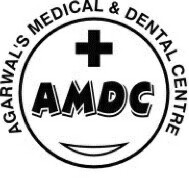Routine health check up
Routine check-ups, are important for maintaining overall health and detecting potential health problems early. It typically involve a comprehensive evaluation by a healthcare provider to assess various aspects of health and well-being. While specific recommendations may vary depending on age, gender, medical history, and risk factors, here's a general overview of what a routine check-up may include: 1. Medical History Review: The healthcare provider will review your medical history, including any chronic conditions, past surgeries, medications, allergies, and family medical history. 2. Vital Signs Measurement: This includes measuring blood pressure, heart rate, respiratory rate, and temperature. 3. Physical Examination: A thorough physical examination may be performed, including examination of the heart, lungs, abdomen, skin, head, neck, and extremities. 4. Screening Tests: Depending on age, gender, and risk factors, various screening tests may be recommended, such as: i. Blood tests for cholesterol levels, blood sugar levels, and other indicators of metabolic health ii. Cancer screenings, including mammograms (for breast cancer), Pap smears (for cervical cancer), colonoscopies (for colorectal cancer), and prostate-specific antigen (PSA) tests (for prostate cancer) iii. Bone density testing for osteoporosis iv. Vision and hearing screenings v. Sexually transmitted infection (STI) testing vi. Immunizations and vaccinations 5. Discussion and Counseling: The healthcare provider may discuss lifestyle factors that affect health, such as diet, exercise, smoking cessation, alcohol consumption, stress management, and sleep habits. Counseling may also be provided on topics such as contraception, family planning, mental health, and injury prevention. 6. Referrals and Follow-Up: Based on the findings of the check-up, the healthcare provider may recommend further tests, consultations with specialists, or follow-up appointments. It's important to have regular check-ups even if you feel healthy, as they can help detect potential health issues early when they are more easily treatable. The frequency of routine check-ups may vary depending on age, overall health status, and risk factors, so it's best to consult with a healthcare provider for personalized recommendations.

